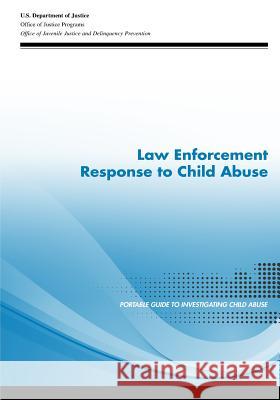Law Enforcement Response to Child Abuse » książka
Law Enforcement Response to Child Abuse
ISBN-13: 9781507562413 / Angielski / Miękka / 2015 / 24 str.
Law Enforcement Response to Child Abuse
ISBN-13: 9781507562413 / Angielski / Miękka / 2015 / 24 str.
(netto: 56,98 VAT: 5%)
Najniższa cena z 30 dni: 58,84
ok. 16-18 dni roboczych.
Darmowa dostawa!
Law enforcement's role in child abuse cases cannot be overstated. It spans the entire case from the initial call, through the investigation, to the court proceedings. Law enforcement officers investigate and determine if a criminal law has been violated; identify and apprehend the offender; file appropriate criminal charges; and provide guidance and support to the child, family, and other agencies involved. Law enforcement's response needs to be constant and consistent. This guide provides the information officers need to ensure consistency, understand their importance as vital members of the multidisciplinary team, and recognize the value of effective procedures and protocols in guiding their work with other professionals to meet the needs of abused children. In most child abuse cases, law enforcement becomes involved in one of two ways-a referral from a school, physician, or agency (such as social services), or a direct call from a parent, child, or neighbor. Because of the complexity of child abuse cases, officers need to be well-trained to handle them. Child abuse cases have unique characteristics that make them particularly difficult to investigate. Children often make "perfect" victims for the following reasons: They may not be able to protect themselves because of their physical and mental development. They generally do not like to talk about the abuse. As a result, they may delay disclosure or tell only part of the story."
Zawartość książki może nie spełniać oczekiwań – reklamacje nie obejmują treści, która mogła nie być redakcyjnie ani merytorycznie opracowana.











